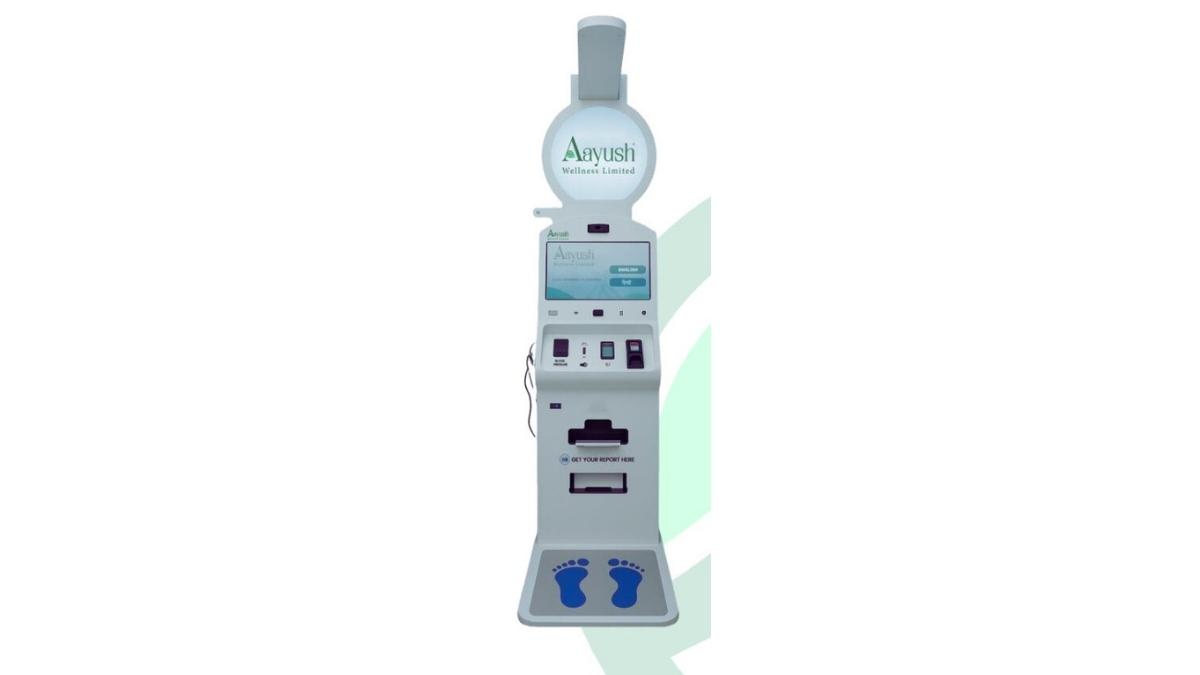Why senior managers walk on eggshells around Gen Z at the workplace

The senior recounted how the shock of skipping the meeting to “take dogs for a walk” gave way to anger, which ebbed to exasperation and finally acceptance. Losing the young executive was not an option since he was good at his work. And explaining to him that deadlines are sacrosanct, even if that meant delaying a dog walk, could lead to questions over work-life balance and even a revolt. Besides, all dogs, noble creatures that they are, deserve a good walk, if not a good run. The trick is to simply ensure that it does not clash with work.
The senior executive, a millennial (from the generation born between 1981-1996), is not the only one walking on eggshells around younger executives in their 20s with less than a decade of work experience (the latter belong to Generation Z or iGen, and were born between 1997 and 2012). Managers across the board, across sectors, and across the world have been grappling with the same challenge.
To be sure, generational differences have always existed. For instance, in the West, those who belonged to the Silent Generation (born between 1928-1945) were people who fought in or grew up during the Second World War. They were called traditionalists or conformists and were followed by their polar opposites, the Baby Boomers (those born between 1946 and 1964). The Boomers were the brash young rebels of the 1960s and 70s who turned the Western world upside down with their counter-culture—flower power, free love, drug use and hippie communes. There probably will never be another generation quite like the Boomers when it comes to being rebellious. But those same rebels, and those who came after them, have been left confounded by the attitudes and expectations of Gen Z.
(Note: The term Baby Boomer was coined after the spike in the global birth rate after the Second World War, until 1964. Generation X refers to people born between 1965 and 1980. Neil Howe and William Strauss are credited with naming Millennials in their book Generations—The History of America’s Future, 1584 to 2069. Social analyst and demographer Mark McCrindle came up with the term Generation Alpha, after the first letter in the Greek alphabet, to indicate they were all born in the 21st century, from 2010 to 2024.)
Sense of entitlement

View Full Image
There has been a shift from “collectivism to individualism as society is going through major changes,” said Kavil Ramachandran, senior advisor at the Thomas Schmidheiny Centre for Family Enterprise in the Indian School of Business (ISB), Hyderabad. “As an economy develops, business is no longer about survival and children have been insulated from their parents’ struggles. Wealth is considered to be inherited and one may not have to actively contribute to creating it,” said the professor, whose clients include some of the largest Indian business families. At the Mumbai office of Japanese tyremaker Yokohama Off-Highway Tires, the entire team meets every Tuesday at 9.30 am. Since most of the tyre manufacturing happens in India and the company’s customers are overseas, this meeting is one of the more important ones of the week for planning, coordination and demand-supply matching.
The senior executive leading the meeting is a Boomer with more than three decades of experience. A few weeks ago, three of his team members did not make it for the meeting. It turned out they had gone on a weekend trip and their phones were switched off. Towards the end of the day, one of the trio picked up and simply said they had overslept. The veteran’s initial fury was replaced by a worrying thought: was there a lack of trust in the younger executives that kept them from revealing where they were and why they had been delayed?
The Japanese tyre maker realized that the young workforce needed to know that the firm was listening to them. It has since created a policy called ‘HR aapke dwaar’.
“For the first time we are grappling with a generation whose basic needs are taken care of and there is a perceived sense of entitlement around policies, processes and standards,” explained Amit Chincholikar, global chief human resources officer at Yokohama Off-Highway Tires. But, he noted, Gen Z is not afraid to question the efficiency of the fundamental policies of a company.
The Japanese tyre maker learnt a lesson from the incident. It realized that the young workforce needed to know that the firm was listening to them. It has since created a policy called ‘HR aapke dwaar’, which asks employees to talk about policies that need to ‘Start’, those that can ‘Continue’, and those that need to ‘Stop’. While changes in administrative issues like canteen, break timings, etc. were put in the first category, a large set of employees asked the management “not to micromanage” under the Stop category.
A very different start

View Full Image
The pandemic has played a key role in widening the gap between the generations. Many young people joined their jobs during the pandemic and its lockdowns, which mitigated any bonding in offices with peers or seniors because of the work-from-home imperative. Consequently, those who are at the beginning of their careers have a different experience and perception of the workplace compared to earlier generations. Corporates that hire youngsters in the hundreds of thousands from campuses, such as the IT sector, have had to resort to making attendance an appraisal parameter to get executives back to the office. In 2020 and 2021, it was again this sector that was forced to deal with its mostly young workers taking to moonlighting to earn some extra bucks.
“Young people report physical-health issues as an impediment to effectively performing work at higher rates than the general population, which includes people decades older than them. In fact, on every metric that interferes with effectively performing work, Gen Z reports more struggles than the general population,” noted a study released in October 2022 by consulting firm McKinsey & Company.
They (Gen Z) did not have gatekeepers and have entered the workplace with a confidence and belief that chest-thumping is necessary.
—Sourav Mukherji
The study, called ‘How does Gen Z see its place in the working world? With trepidation’, looked into responses from 25,062 Americans, including 1,763 in the Gen Z age range of 18 to 24. It found “concerning levels of distress” among young people, including an astounding 55% reporting having either been diagnosed with or having received treatment for mental illness (compared with 31% of people aged 55 to 64 reporting the same).
“They (Gen Z) have grown in a different environment, where access to information, both good and bad, is easy. They did not have gatekeepers and have entered the workplace with a confidence and belief that chest-thumping is necessary,” said Sourav Mukherji, who teaches Organizational Behavior & Human Resources Management at Indian Institute of Management-Bangalore.
A study found “concerning levels of distress” among young people, including an astounding 55% reporting having either been diagnosed with or having received treatment for mental illness.
In his discussions with IIM-B students, Mukherji says many cite how they can make more money by being social media influencers rather than work in a corporate. “Their success stories are different. Hence, N.R. Narayana Murthy (Infosys co-founder) talking about long hours (a 70-hour week) may not inspire them,” he told Mint.
“There are teams where the bosses insist on clocking in at 9 am and one can leave by 7 pm. Those teams have the highest attrition. No one my age stays in such firms,” said Gauri B., a 22-year-old professional working in Delhi.
Beyond moonshots

View Full Image
When Mint spoke to senior executives across sectors for this story, those who had heard the anecdote about the janitor at the National Aeronautics and Space Administration (Nasa) said it does not apply today. The story goes that in 1962, when US president John F. Kennedy visited Nasa, he noticed a janitor with a broom. The president introduced himself and asked the janitor what he was doing. The latter replied that he was helping put a man on the moon. A few years later, the US made its first manned moon landing (in 1969).
The story has been cited in B-schools for decades as an example of how a company needs to ensure that its goals remain the same across hierarchies. But the managers Mint spoke to opined that the younger set of employees today do not consider a company’s goals to be critical.
Did the signs crop up now? Apparently not. Rajkamal Vempati, president and head of human resources, Axis Bank, says she spotted them years ago. A 33-year-old relationship manager was unhappy with his hike. The reason cited was novel; he said his wife and he were used to taking four holidays in a year and given that she was now on a sabbatical, the hike he got wasn’t sufficient to cover their four holiday expenses. “I was shocked. I thought he would raise the issue of a home loan or other expenses. But a holiday, earlier a discretionary expense, had become a necessary experience that couldn’t be traded off. It got me thinking on how we have to think differently,” said Vempati.
Axis Bank, which has 104,000 employees of which 45-50% are under 30, has since revised its leave policy to include more time off for fathers, parents who have just adopted etc., and so on.
The expectations of what a workplace should be are chalked out right at the internship stage by some. For instance, Nazia K. , a second-year law student in Mumbai, discussed the working hours of the law firm she was looking to join with seniors before her internship started. “Many in my batch find out the working hours and check if the policies are conducive to a work-life balance…if there is time for us to meet our friends and pursue our hobbies,” she told Mint.
When reminded that for many a good part of their initial career is spent in the office, Nazia said that would not be something she or her classmates would be keen on. “Money is important and some may make that choice. But most of us already know the kind of legal practice we want to get into and the hours that we will put into the workplace,” she declared.
Many in my batch find out the working hours and check if the policies are conducive to a work-life balance.
—Nazia K.
“It is an understanding within my age group that two years is what you give a firm because beyond that there is not much to offer. If you work in larger consumer firms that have role-change opportunities, then one must ask for that or leave,” said Gauri. She is willing to commute long hours to work but insists that her employer, a mid-size manufacturing firm, offer her training courses in the latest skillsets. “I do not want to be unemployed for lack of updated skills. We also want to work in firms where there is little hierarchy,” she said.
Fashion faux pas

View Full Image
While it has made progress, Axis Bank, and many other firms, are continuing to evolve in their understanding of new-age attitude towards work. Attire, for instance, may be a simple matter but it has often become a big bone of contention. In banks, formal attire is mandatory and fresh graduates are trained in grooming since customers expect to see bank executives dressed formally. It may be regarded as “old school” today but appearances inspire confidence that their money is parked safely, say senior bankers.
Younger executives, however, prefer to be casual about their attire. It is not unusual for them to tell managers that the organization’s sartorial rules are outdated, and this is a trend seen even in smaller towns. “The definition of casual and formal has blurred to the extent that managers in our offices have been nudged to give their teams grooming tips. And if that fails, ask some of them to go home, shave, change their clothes and return. This kind of policing was unthinkable in our times,” said Vempati.
While the struggle to understand Gen Z continues, India Inc will have to soon deal with Gen Alpha—those who were born after 2010. By many indications, these kids are non-conformist digital natives.
Another reason for the clash in approach is the need to know where employers stand on certain principles. For instance, leading law firms are seeing junior employees question how a client is selected.
“The younger generation thinks about the views and actions of clients on issues around diversity, climate, and impact on society, more than young lawyers did in the years gone by,” said Bishen Jeswant, partner, Labour and Employment for law firm Cyril Amarchand Mangaldas. “While the firm does consider these issues, there isn’t currently a formal process around onboarding or off boarding clients on these parameters. That these matters are even being considered by the younger lawyers in the context of clients is itself new and commendable.”
While the struggle to understand Gen Z continues, India Inc. will have to soon deal with Gen Alpha—those who were born after 2010. By many indications, these kids are non-conformist digital natives with a keen sense of their ecological footprint. So, fossil fuel-powered companies could well end up missing out on their talents. As for HR managers, they will have to listen more to understand them. Much more.

Atul Tiwari is a seasoned journalist at Mumbai Times, specializing in city news, culture, and human-interest stories. With a knack for uncovering compelling narratives, Atul brings Mumbai’s vibrant spirit to life through his writing.






